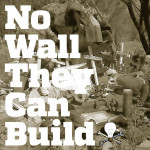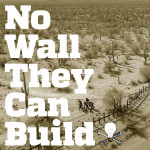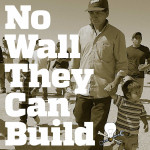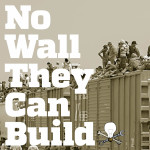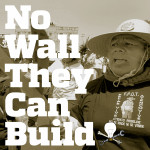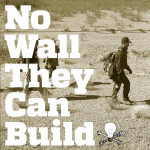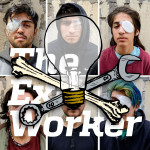
#72: Radio Evasión—Dispatches from Chile Part 3
DESCARGAR AQUÍ EL EPISODIO EN ESPAÑOL Has normality returned to Chile? NO! Social peace? Neither! The people don’t want peace without dignity. To borrow a phrase from the situationists, the people don’t want the peace of the graveyard. The revolt has been going on for over a month now. In this episode we have two reports about the day-to-day reality of the demonstrations in downtown Santiago, two interview with anarchists in Santiago and Valparaiso, an analysis on the April 2020 constitutional plebiscite, and a couple of strange, surprise interviews too. If you can help us with Spanish translation or transcription, please write us at podcast@crimethinc.com. {November 29th, 2019} -------SHOW NOTES------ Table of Contents: Introduction {0:00} November 25 report {00:02:55} November 12: A view from the streets {00:27:40} Not Falling for It: How the Uprising in Chile Has Outlasted State Repression And the Questions for Movements to Come {00:49:35} Rara Señal interview {01:01:45} Santiago anarchist interview {01:22:35} Faced with the constitutional assembly and the government’s repressive agenda: What is the anarchist proposal in the Chilean revolt? {02:06:55} Joker interview {02:15:20} Total Chaos interview {02:17:50} Trusted fundraiser to support protesters in Chile Our previous coverage/Nuestra cobertura previa: The Ex-Worker #71: Radio Evasión—dispatches from Chile Part 2 En español también! Week 2: neighborhood assemblies & daily rioting downtown The Ex-Worker #70: Radio Evasión—dispatches from Chile Part 1 Reports from fare-dodging to a week of full-blown revolt, en español también Chile: Resisting under Martial Law A Report, Interview, and Call to Action Chile: Resistiendo bajo la Ley Marcial Un reporte, una entrevista y una llamada a la acción On the Front Lines in Chile Six Accounts from the Uprising Texts included in this episode/textos y comunicados que se mencionan en este episodio: Not Falling for It: How the Uprising in Chile Has Outlasted State Repression, and the Questions for Movements to Come No nos engañarán: Como la revuelta en Chile ha sobrevivido y burlado la represión del estado y unas preguntas para los movimientos por venir La Ilegitimidad de la Violencia, la Violencia de la Legitimidad: Que quiere decir Piñera cuando habla de “la violencia” The Illegitimacy of Violence, the Violence of Legitimacy A Qué se Refieren Cuando Hablan de Paz? What They Mean when They Say Peace Frente a la asamblea constituyente y la agenda represiva del gobierno: ¿cuál es la propuesta anarquista en la revuelta de la región chilena? Pojects interviewed and mentioned in this episode/iniciativas que incluimos en este episodio: Rara Señal: Reportes del caos desde el accidente geográfico costero de Valparaíso ¡No hay vuelta atrás! LaPeste.org Anarquia.info Contra Info Keep on the look out for the full interview with Rara Señal via Anarchist Radio Berlin Movement art inspired by Negro Matapacos Documental Matapacos Galería CIMA, daily livestream of Plaza Italia Wikipedia: Camilo Catrillanca The case of Macarena Valdés Encapuchados toss a teargas canister into a police vehicle In defense of the Black Bloc: Disproving certain accusations and conspiracy theories against those who wear masks Applause for the “first line” demonstrators The case of Abel Acuña, who fell from the statue in Plaza de la Dignidad. If it hadn’t been for the police he could have lived Motorcycle demonstration rolling in to Plaza Italia the evening of November 25 The first game of professional soccer since the revolt began was cancelled due to demonstrators, and players covered their eyes in recognition of the more than 200 eyes that have been lost due to the pellets that police are shooting at demonstrators Protests fill the luxury malls of bourgeois neighborhoods When they toppled that enormous highway sign in Antofagasta The best flyer ever Washington Post story on the gringo piece of shit who shot at protesters in Reñaca/Viña del Mar. Fuck this fool. A Chilean cop confuses a videoactivist for an undercover Skaters critical mass Demonstrators in Concepción topple a statue of Spanish colonizer Pedro de Valdivida Demonstrators in Plaza de la Dignidad, Santiago, ground a police drone using lasers UPDATED Datadump de Carabineros de Chile (Pacos inculiables) A MASSIVE repository of police and military brutality recorded from individual phones and cameras Instagrams: FunaMetro Piensa Prensa - Instagram Iniciativa Pasaje Justo Evasión Masiva Chile Memes Politiqueros Ongoing movement media from around Chile: Radio Villa Francia - Instagram Radio Kurruf (Concepción) - Instagram Diario Venceremos - Instagram Radio Placeres (Valparaíso) Radio 19 de Abril (Cobertura Colectiva) Radio Humedales (Concepción) Prensa Opal Periódico Resumen (Concepción) Radio Manque (Rancagua) Rara Señal Medio Libre La Zarzamora Radio JGM Kiwicha Comunicaciones Radio Última Frecuencia Waiwen Tv (Osorno) RadioWilliche Mül’ütu (Melipulli – Puerto Montt) Radio Latue (Coyhaique) Revista Caminando (Temuco-Valdivia)










